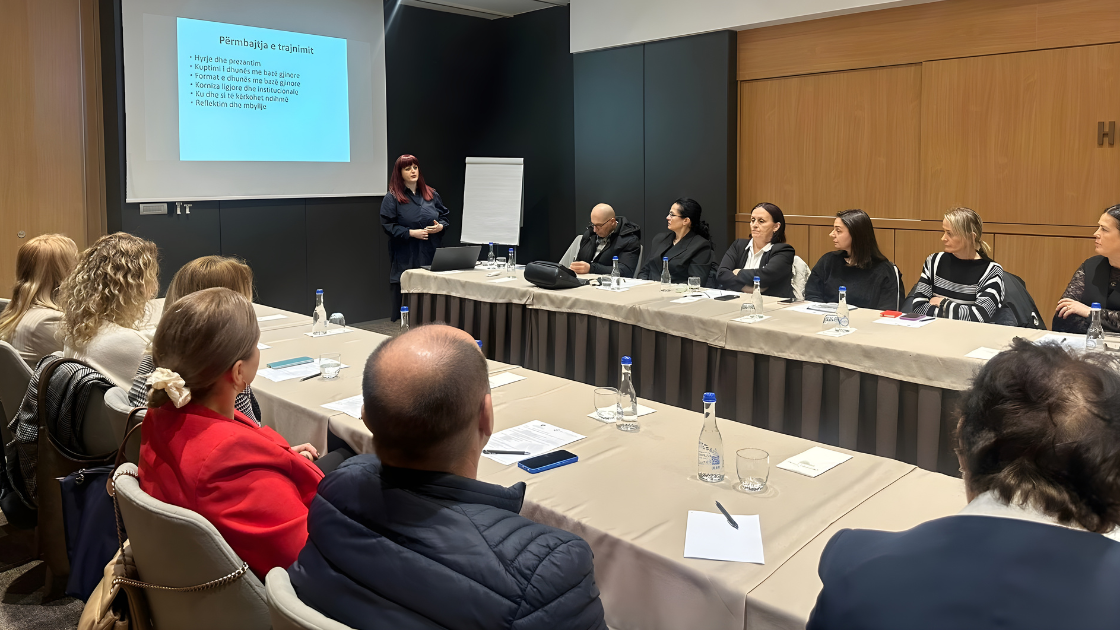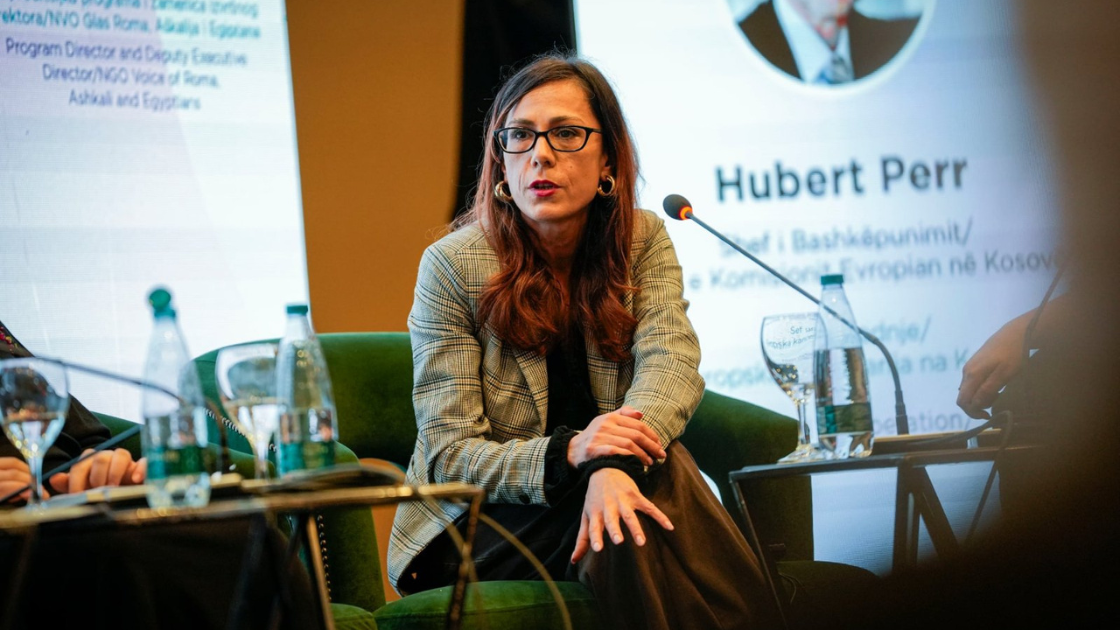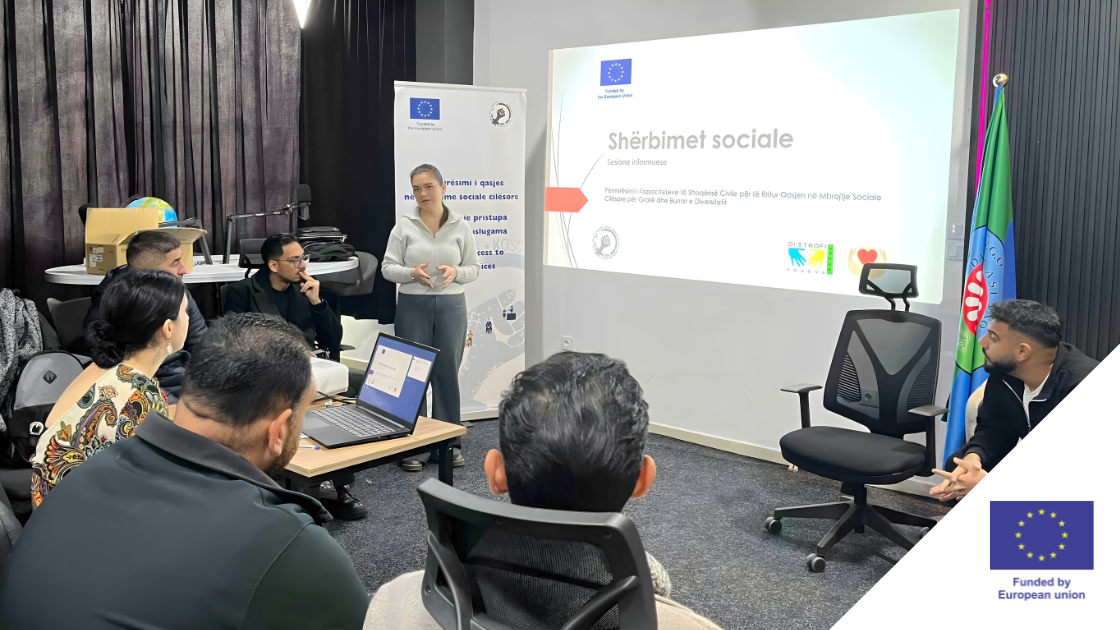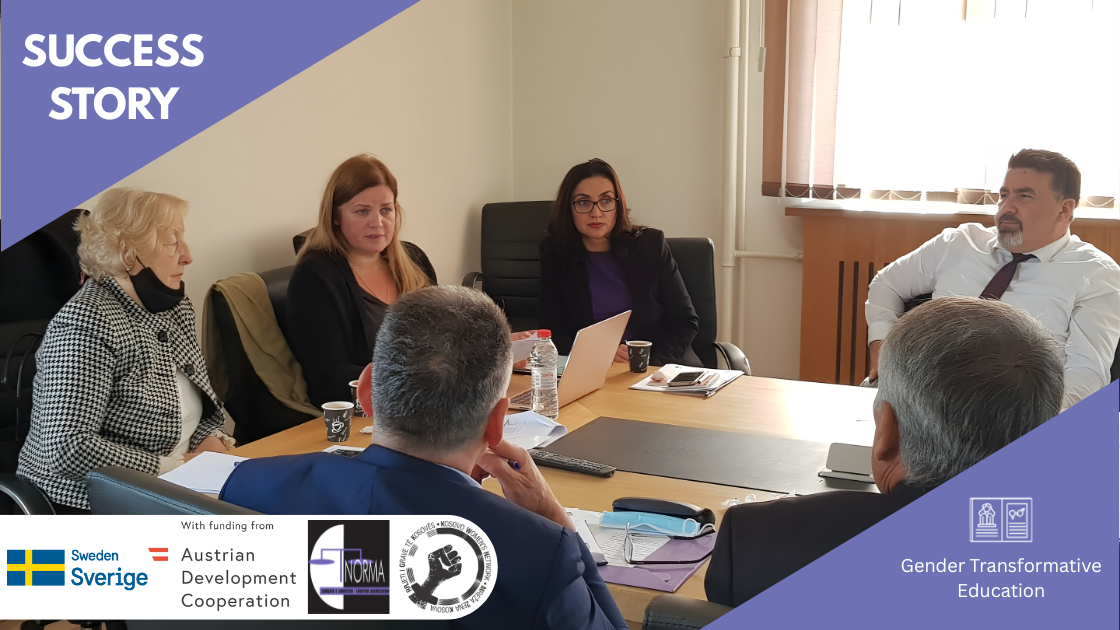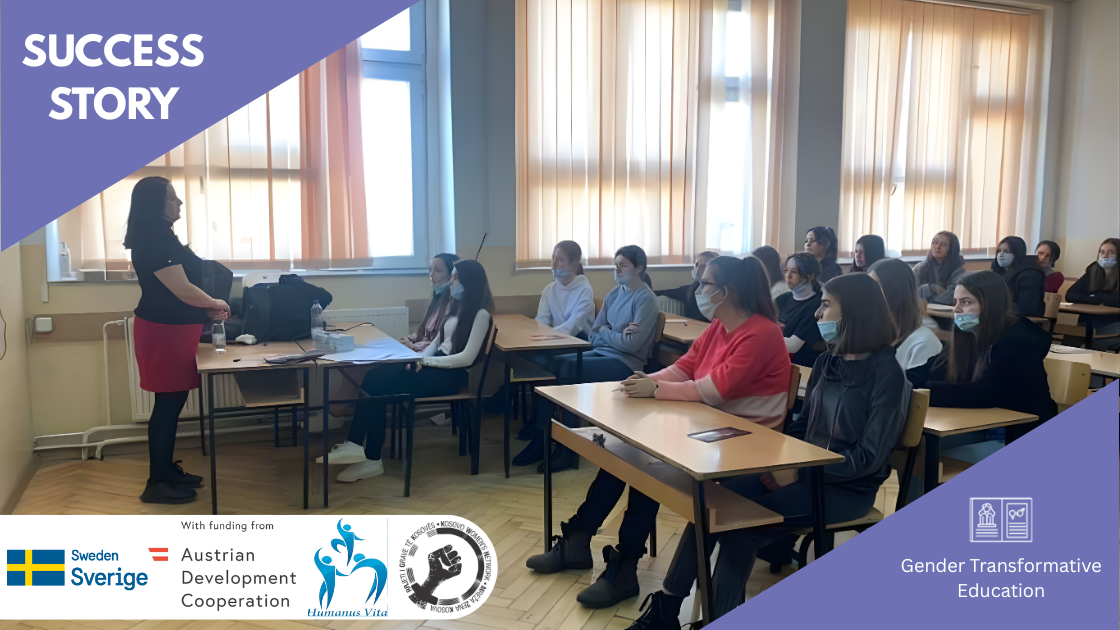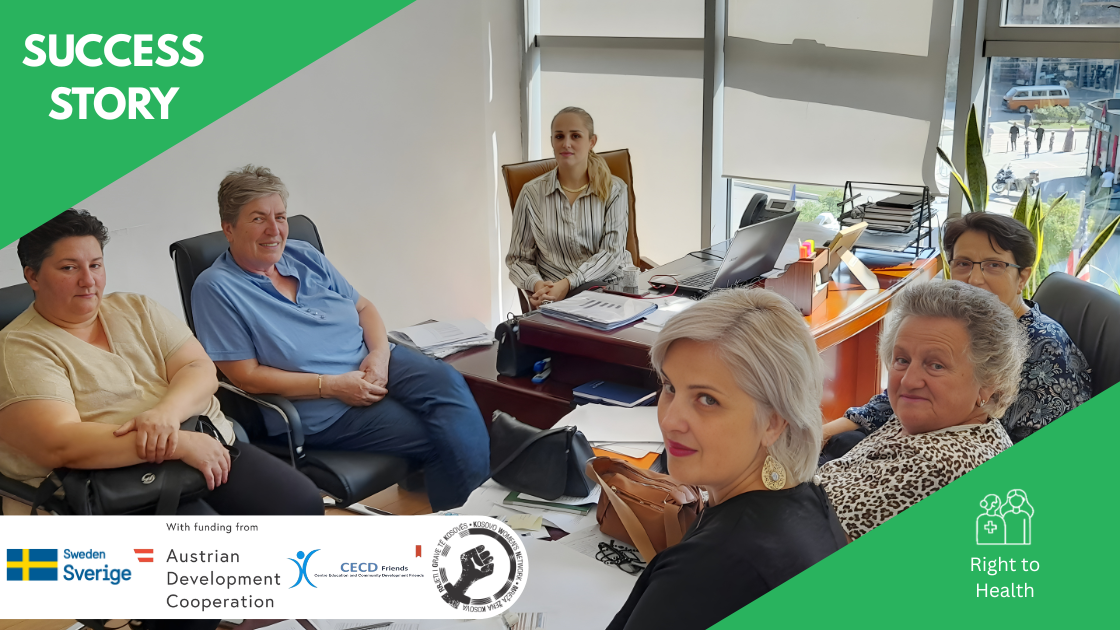‘’We should set more budget aside for women who want to set up businesses. No but it is difficult for women to do that’’, said some participants while talking to each other as they were walking in and taking place at the table, for the workshop organised by Kosova Women’s Network (KWN) for different officials of various municipal directories in Gjakova, all gathered to learn, discuss and think about Gender Responsive Budgeting.
Gjakova is the second municipality after Kaminica that has taken on the task to integrate a gender perspective in their municipal budgets and Medium Term Expenditure Framework (MTEF). Based on the newly approved Law on Gender Equality, every institution (from Ministry, municipality to Ministral departments) that have their own budget, must incorporate GRB into their budget documents. On this day, it was time for different officials from different municipal directories to gather and get introduced in a very practical and hands on manner to the concept of GRB. Present were ten officials from the following directories; Budget and Finance, Agriculture Forestry and Rural Development, Administration (2), Economic Development, Emergencies, Cadastres, Education, Inspectorate and Health.
After some more informal conversations were coming to an end, Nicole Farnsworth Program Manager and Lead Research at KWN welcomed everybody and introduced the issues that were to be handled that day, she praised the municipality of Gjakova for its professional MTEF and stressed that Gjakova will not have difficulties in making the integration of GRB in their budget documents a great success because of this.
Donjeta Morina Capacity Development Coordinator at KWN started with some more in depth explanation of what GRB entails and what lessons could be learned from the Kaminica experience. An important clarification was made right at the beginning of the presentation where the participants got explained that GRB is the integration of a gender perspective in all steps of the budget. A gender perspective is thinking about the planning and allocation of the budget in gender terms. “One of the common misconceptions is that GRB is only for women or that is requires additional funds”, stated Donjeta, “This is not the case. Just imagine a village with two inhabitants that have budget of €10. Most people think that an equal division of the budget would be to give each of the inhabitants €5 each. But within the framework of GRB, this is not the case. GRB requires a situational analysis of needs. If you want to apply GRB correctly into budget documents and make sure that funds are divided equally, you should analyse the different needs of different people that belong to different social categories.” – she continued. The participants who were nodding understood and agreed fully.
After a detailed analysis of the different budget lines in which GRB could be integrated in, it was time for each participant to put what they learned into practice by analysing the sections relevant to their own directorate within last year’s MTEF and see where they could improve this budget document by integrating GRB within it. The results were good and useful as all officials expressed their desire to see a growth in the number of women employed within their directories and the field in which they operate. Another comment made frequently was that they believed that in the future data presented within the MTEF for every budget line, should be segregated by gender. All participants left thanking Donjeta for her well-presented workshop and for the new knowledge they gained. This workshop was supported by Austrian Development Agency (ADA).

